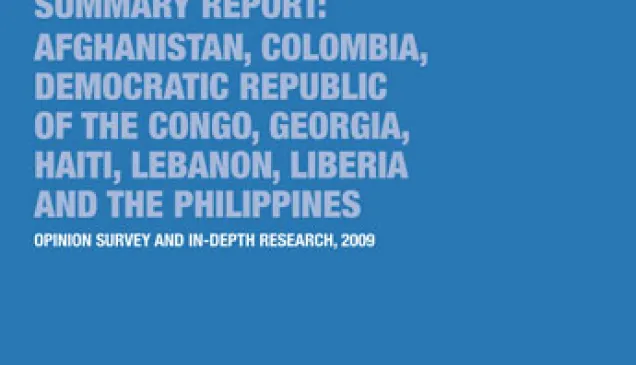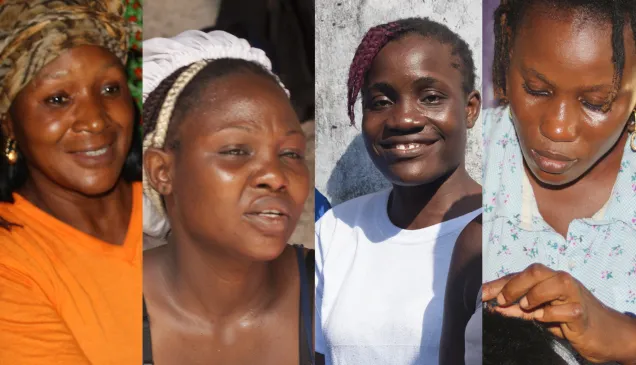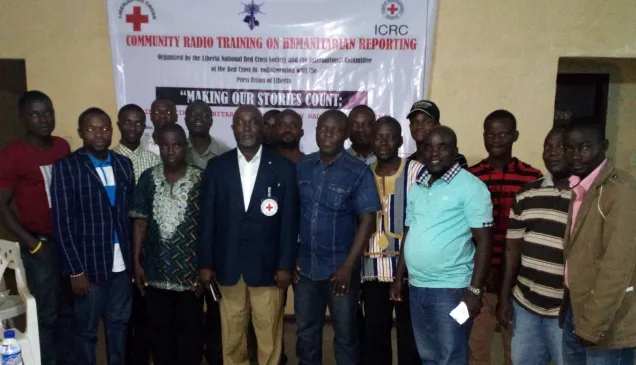Liberia: Taking care of Ebola orphans
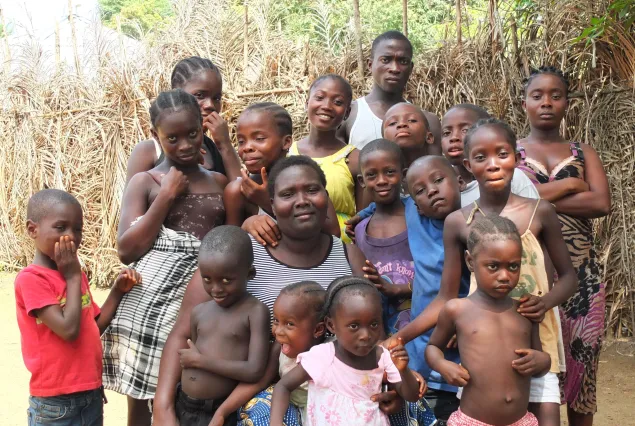
Jenneh Kaizolu (39) is an Ebola survivor from Paynesville, Monrovia. She lost her mother, brother and two sisters to Ebola. She is now taking care of 25 children: six of her own, plus 19 nephews and nieces, all Ebola orphans.
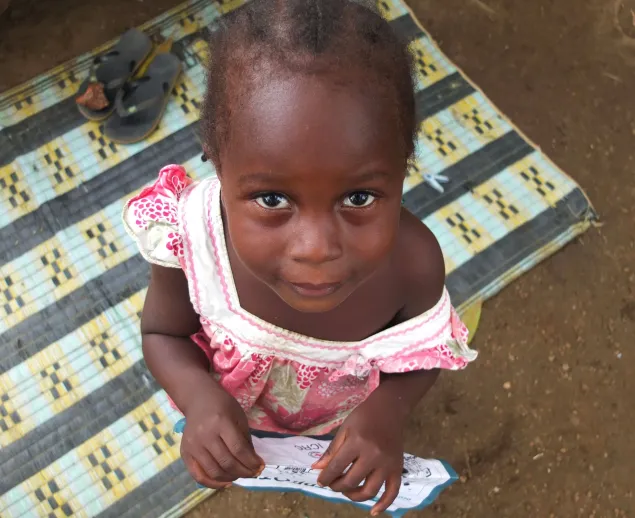
Faith Kaizolu (4) one of Jenneh's daughters.
Ebola-affected children can be divided into three categories: double orphans, who have lost both parents, semi-orphans, who have lost one parent, and Ebola survivors. Jenneh’s extended family includes children in all three categories.
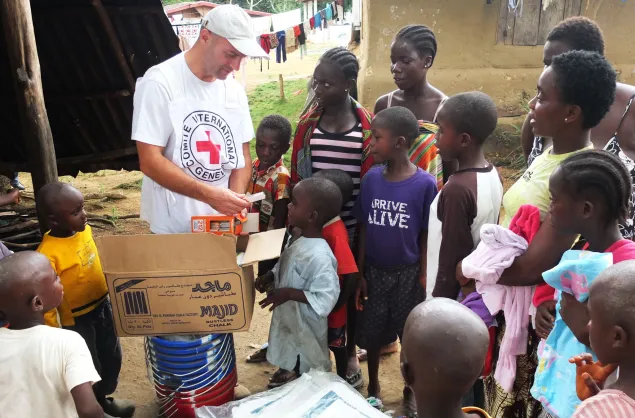
The ICRC team in Monrovia visits orphans benefiting from our cash assistance programme for Ebola survivors.
Most of the children are being taken care of by relatives, like Jenneh. We provide those most in need with essential hygiene and household items.
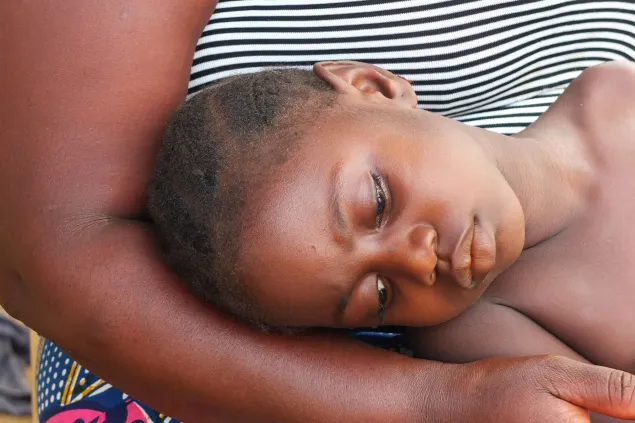
Hawa Pabai (6) is one of Jenneh’s nieces. She contracted malaria last month, so the ICRC referred her to MSF for treatment.
Many Ebola orphans and children who have survived the disease are now suffering from other health problems, both physical and mental.
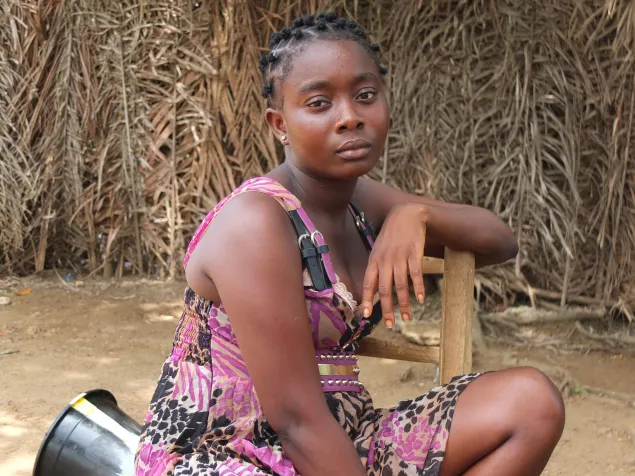
Famata (18) is Jenneh’s oldest daughter and an Ebola survivor.
She used to sell second-hand clothing, but all her stock was stolen while she was at the Ebola treatment unit. “Right now I'm helping my mother in the cassava field. I need money to restart my business,” she explains.
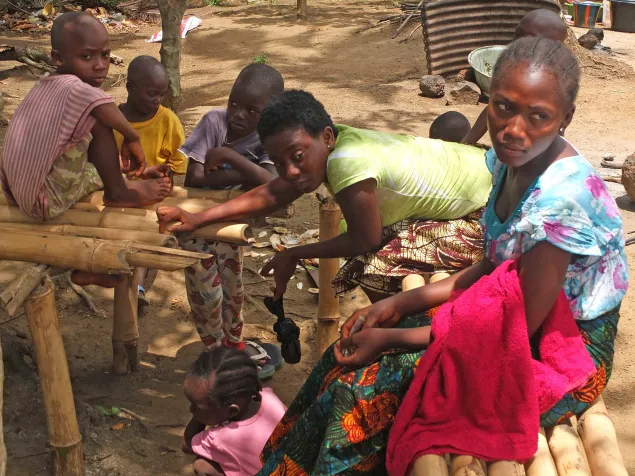
Like her mother and sister, Jenneh (17, in blue), survived the virus.
“I am taking care of the other children. I want to go back to school, but we can't afford it,” she tells us. Like other families, Jenneh’s will benefit from the ICRC livelihoods programme to be launched in the second half of 2015.
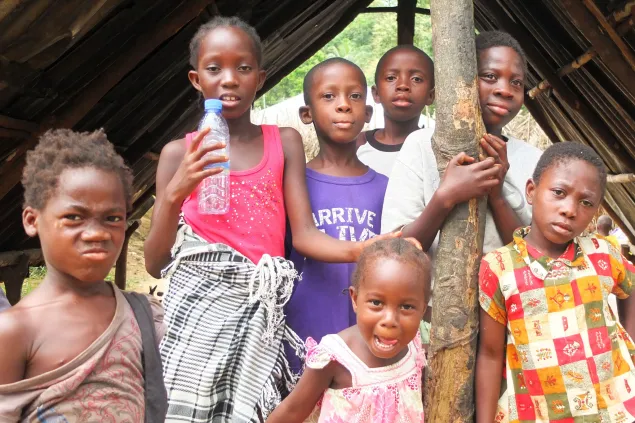
To be eligible for assistance, Ebola orphans have to be registered by the Ministry of Gender, Children and Social Protection and by other organizations.
87% of the children that the ICRC visited were not yet registered and had not received any support, so we referred them to the relevant authorities for registration.
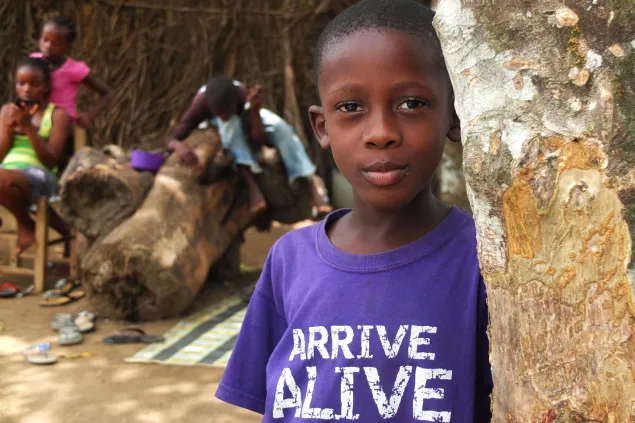
Ten of "Jenneh's children" are currently going to school, thanks to a church in the community that helps with the fees and uniforms. Jeff London is one of them.
“I'm living with my auntie. My mum died and I don’t know my father, but I'm happy; they are my family,” says the 9-year-old.
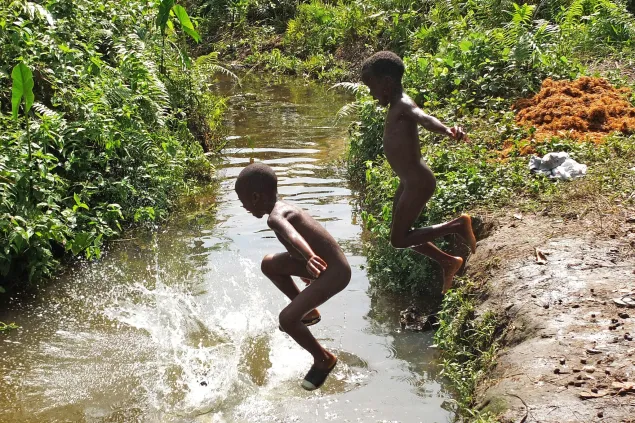
Cousins Thomas London (5) and Prince Lincoln (6) are now living together with their Auntie Jenneh. They both lost their mother to the Ebola virus.
The boys enjoy being together and jumping in the small creek near the house.
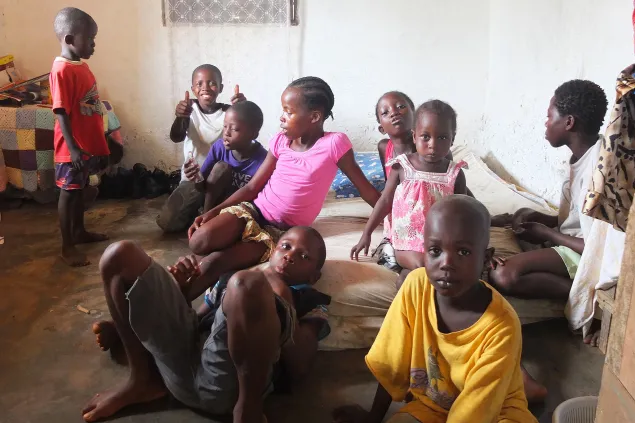
Jenneh’s husband left when she became ill. Her uncle offered her two rooms to host the children.
She earns a living growing and selling vegetables "It's not easy to take care of all of them. When I go to the vegetable garden the neighbours look after the little ones," she explains.
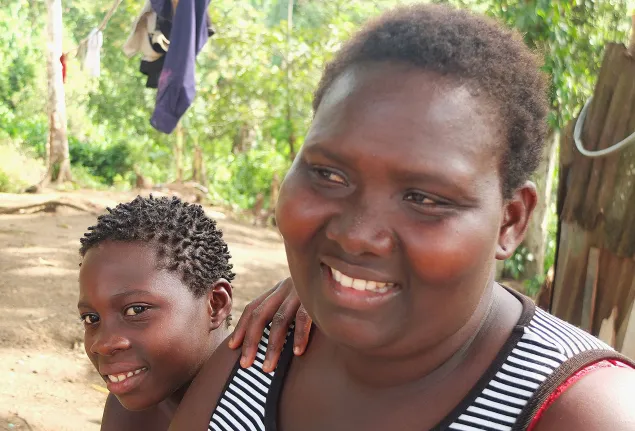
Jenneh with daughter Jamiyatu (12).
"The future? I think it'll be fine. They'll be good, they'll become somebody and maybe do something for me, so I'm taking good care of them."
After dealing for more than a year with the worst Ebola outbreak in its history, Liberia has just been declared Ebola-free. Vigilance is still needed, but the country can now focus on healing the wounds inflicted on communities and help them build a brighter future.
According to the authorities, the disease leaves behind nearly 4,500 Ebola-affected children, of whom 3,000 have lost one or both parents to the deadly virus. Jenneh, 39, is an Ebola survivor. On top of her six children, she is taking care of 19 nephews and nieces, all Ebola orphans.
Early this year, the ICRC launched a programme to help Ebola orphans like Jenneh's nephews and nieces. We're giving direct assistance to the children and the families hosting them, referring them to other humanitarian organizations whenever needed and encouraging the government and child protection agencies to give them the help that they need as children.

